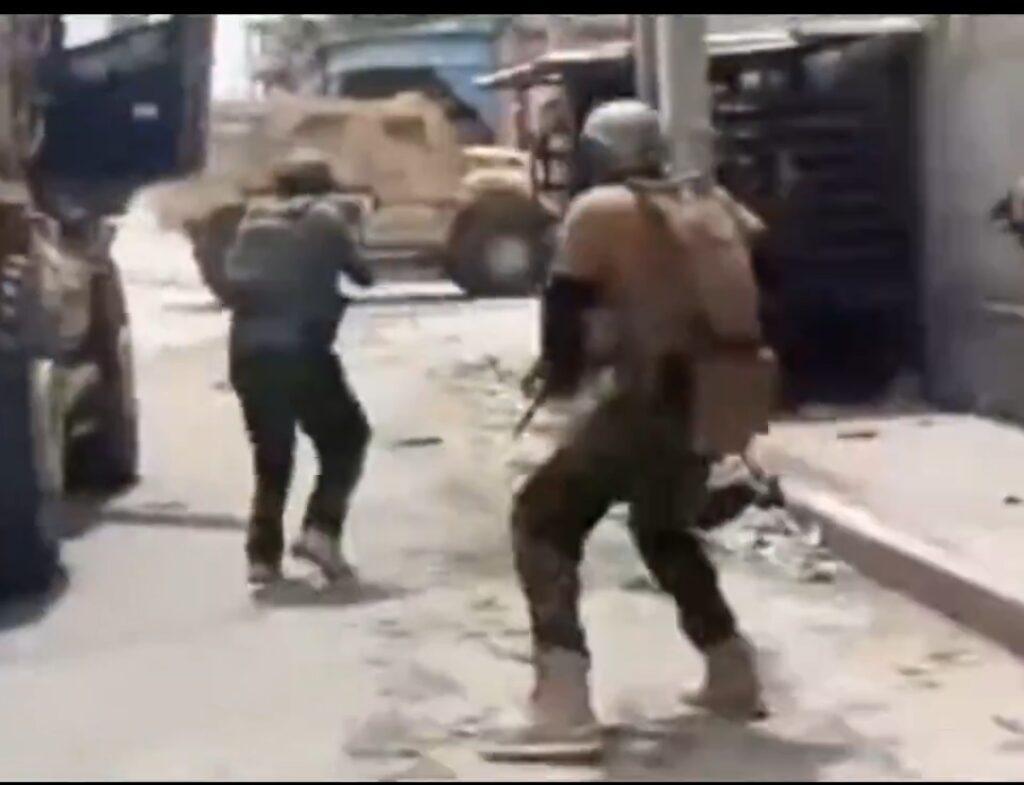The situation in Haiti has reached a critical point where law enforcement officers are facing unprecedented challenges. The ‘protestors’ they encounter are not peaceful demonstrators; they are heavily armed gangs intent on violence and chaos.
These groups are equipped with firearms and other dangerous weapons, making every encounter potentially life-threatening for the police. The concept of peaceful protests has been replaced by a brutal reality where an eye for an eye mentality prevails.
The Haitian police are often outgunned and outnumbered, forcing them into perilous situations daily. Their duties, which ideally involve maintaining peace and order, have transformed into a battle for survival against well-armed adversaries.
This stark contrast to traditional policing highlights the severe security crisis in the country, where the lines between protestors and combatants have blurred. The police’s efforts to restore order are fraught with risk, as they face enemies who are not only determined but also heavily armed.
Gangs in Haiti have capitalized on the country’s instability, seizing control of neighborhoods and imposing their rule through violence and intimidation. This environment has left the police struggling to maintain authority and protect civilians.
The gangs’ firepower and ruthless tactics mean that police operations are conducted with extreme caution, knowing that each engagement could escalate into a deadly confrontation. The bravery and resilience of these officers are tested daily as they navigate a landscape dominated by fear and hostility.
Amidst this turmoil, the support and well-wishes for the Haitian police are crucial. They operate under severe constraints, with limited resources and overwhelming odds.
Their courage in the face of such adversity is commendable, as they continue to uphold their duty to protect and serve, despite the dangers.
International and local communities must recognize the gravity of their situation and provide the necessary support to enhance their capabilities and ensure their safety.
The Haitian police’s plight underscores the need for comprehensive solutions to address the root causes of the crisis. Strengthening law enforcement alone is not sufficient; there must be concerted efforts to dismantle the power of gangs and restore rule of law.
This involves not only tactical support but also socio-economic interventions to undermine the gangs’ influence and provide alternative pathways for the youth who might otherwise be drawn into criminal activities.
In conclusion, the challenges faced by the Haitian police are a stark reminder of the fragile state of security in the country. Their daily struggle against heavily armed gangs is a testament to their dedication and bravery.
It is imperative that they receive the support and resources needed to perform their duties safely and effectively. The international community must stand in solidarity with Haiti, advocating for comprehensive strategies to restore peace and stability.


